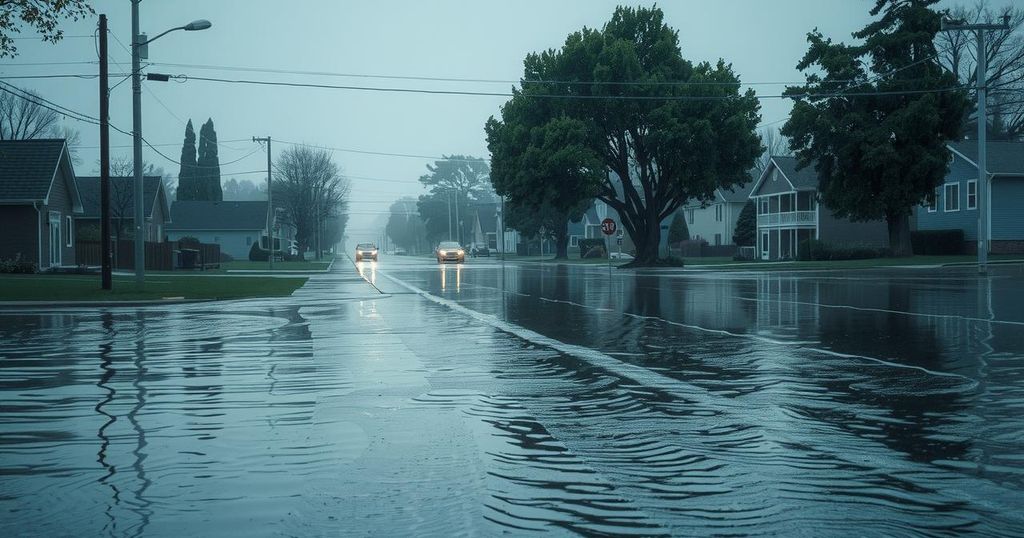Storm Eowyn Impacts Ireland and Scotland with Hurricane-Force Winds
On January 24, 2025, Storm Eowyn struck Ireland and Scotland with hurricane-force winds, resulting in widespread power outages and travel disruptions. Authorities issued red weather warnings as wind gusts reached unprecedented levels, urging residents to stay home. The storm has highlighted concerns over climate change and its role in intensifying extreme weather events.
A powerful storm named Storm Eowyn wreaked havoc across Ireland and Scotland on January 24, 2025, bringing hurricane-force winds that led to widespread power outages and travel disruptions. Authorities issued a red weather warning across the entirety of Ireland and parts of Scotland, signifying a significant risk to life as wind gusts reached 114 miles per hour, the strongest recorded since World War II. Schools were closed, and extensive cancellations affected trains, ferries, and air travel, while city centers became eerily quiet as residents were urged to remain indoors.
In Dublin, Belfast, and Glasgow, many took heed of government advice to remain home during the storm’s peak. Northern Ireland First Minister Michelle O’Neill advised against unnecessary travel, stating, “Please just stay at home if you can,” while Scottish First Minister John Swinney affirmed, “We have to be clear. People should not travel.” The storm’s ferocity resulted in more than 700,000 homes in Ireland and nearly 100,000 in Northern Ireland experiencing power outages due to extreme damage to the infrastructure.
Storm Eowyn’s chaotic winds impacted urban areas significantly, where the streets were void of typical activity. With reports indicating wind speeds that could generate a bomb cyclone condition, scientists warned that climate change could intensify future storms further. As Hayley Fowler stated, “As the climate gets warmer, we can expect these storms to become even more intense, with greater damages,” underlining the connection between changing climate patterns and severe weather events.
Storm Eowyn is a significant meteorological event affecting Ireland and the UK, characterized by severe weather conditions, including hurricane-force winds. The storm prompted unprecedented public safety measures with rare weather warnings issued across affected areas. This instance highlights the urgent need to consider the effects of climate change on weather patterns, particularly the frequency and intensity of storms. Knowledge regarding these impacts is vital for understanding and mitigating future risks associated with extreme weather events.
In summary, Storm Eowyn has caused severe disruptions in Ireland and Scotland, leading to extensive power outages, school closures, and travel cancellations. The extreme weather conditions prompted official warnings regarding personal safety and emphasized the need for increased awareness of climate-related challenges. As scientists indicate, the effects of a warming climate may lead to increasingly intense storms in the future, necessitating proactive measures in community preparedness and infrastructure resilience.
Original Source: apnews.com




Post Comment